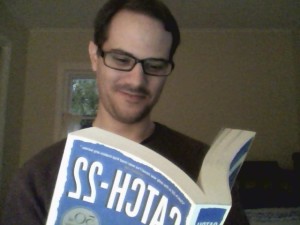
Adam Marletta, WEN Political Commentator
If there is any hope to be found in the recent police killings–and subsequent exoneration of the officers involved–of Michael Brown and Eric Garner, it has been illustrated in the inspiring, ongoing protests against excessive police force and a racist criminal justice system that seems to hold two separate laws for white and black perpetrators.
Peaceful protests have erupted throughout the country in response to the killings–sadly, just the latest in the U.S. law enforcement’s decades-long targeting of African Americans and minorities. (See: The “War on Drugs.”)
Despite the corporate media’s exclusive focus of the instances of vandalism and rioting, protests in Ferguson, MO following the grand jury’s refusal to indict Officer Darren Wilson for the murder of Brown were largely peaceful. Meanwhile, more than 280 protesters were arrested in New York City after another grand jury failed to indict NYPD Officer Daniel Pantaleo for choking Eric Garner to death.
Protesters have latched on to Garner’s last words, his desperate cry, “I can’t breathe!” as a rallying call. Social media activists have likewise found solidarity in the affirmation, “Black Lives Matter!”
Groups in Portland have mounted some demonstrations as well. A spirited but peaceful demonstration on Sunday, Dec. 7 attracted 600 people, according to the Portland Press Herald/Maine Sunday Telegram. A similar march on the preceding Friday, during the December First Friday Art Walk, generated a slightly smaller crowd (between 250-300 participants by this writer’s estimate). Protesters at the latter event staged “die-in” demonstrations at the Portland Police Department and at the intersection of High Street and Spring Street.
And some 30,000 protesters converged in New York City for a massive day of action on Saturday.
These protests are, no doubt, an encouraging sign. And, while racism is the central focus of these demonstrations, it is important to view them in the broader context of Wall Street’s looting of the global economy, staggering unemployment which is far worse than the latest “Jobs Report” claims, and the rapidly expanding police and surveillance state. We must see all of these trends as the inevitable result of unfettered, unregulated capitalism. Indeed, every significant political philosopher has understood the inextricable link between racism and capitalism.
Failure to connect these struggles threatens to turn this burgeoning movement into another narrowly-focused “issue” campaign, emphasizing the peripheral concerns of so-called “identity politics” over a larger, more encompassing struggle for social justice. Quibbling among ourselves over who has more “privilege” will do nothing to build a movement, let alone stop the indiscriminate killing of black men throughout the country. Let’s leave such postmodernist discussions for the classroom and, in the words of Monty Python, “Get on with it!” already.
I often worry that we are a little too sheltered from the plight of African Americans here in Maine. If so, it is not difficult to see why. We are, quite literally, the whitest state in the country. According to the 2010 Census data, 94.4 percent of Maine’s population is “non-Hispanic white.” Indeed, I can only imagine the sort of isolation black residents must feel living here.
Despite media pundits’ childish claims we now live in a “post-racial” society, the fact remains the U.S. law enforcement system is still disproportionately stacked against black and Hispanic Americans. African Americans constitute 1 million of the nearly 2.3 million Americans in prison, according to the NAACP. Additionally, a recent report by the Washington D.C.-based advocacy group, The Sentencing Project, estimates one in three black males will go to prison “at some point in their lives.” The vast majority of these men are imprisoned for petty felonies or minor drug-possession charges.
Michelle Alexander’s The New Jim Crow: Mass Incarceration in the Age of Colorblindness is essential reading on the subject of race in the 21st century. Alexander argues we have simply traded in the outmoded, explicitly racist Jim Crow laws of the Reconstruction era for a more subtle, sophisticated system of racial oppression. These new Jim Crow laws, she contends, have relegated black Americans to the position of a “growing and permanent undercaste”–one that is largely hidden from view.
“Arguably the most important parallel between mass incarceration and Jim Crow,” Alexander writes, “is that both have served to define the meaning and significance of race in America.”
Indeed, a primary function of any racial caste system is to define the meaning of race in its time. Slavery defined what it meant to be black (a slave), and Jim Crow defined what it meant to be black (a second-class citizen). Today mass incarceration defines the meaning of blackness in America: black people, especially black men, are criminals. That is what it means to be black.
It is imperative, therefore, that we stand in solidarity with the citizens of Ferguson–and New York, and Cleveland, and Palestine, and Iraq, and Syria. This is a movement whose time is long overdue. Let’s not let it slip away.
Adam Marletta is a journalist, writer, and activist. He studied Communications at Colby-Sawyer College and holds a Master’s degree in Journalism from the University of Maine, Orono. He has written for the York County Coast Star, the Tourist News, the Weekly Sentinel, the Journal Tribune and the New Hampshire alt-weekly, The Hippo. Readers can contact him at adamd.marletta@gmail.com.





Fear Of a Black Planet
Adam Marletta, WEN Political Commentator
If there is any hope to be found in the recent police killings–and subsequent exoneration of the officers involved–of Michael Brown and Eric Garner, it has been illustrated in the inspiring, ongoing protests against excessive police force and a racist criminal justice system that seems to hold two separate laws for white and black perpetrators.
Peaceful protests have erupted throughout the country in response to the killings–sadly, just the latest in the U.S. law enforcement’s decades-long targeting of African Americans and minorities. (See: The “War on Drugs.”)
Despite the corporate media’s exclusive focus of the instances of vandalism and rioting, protests in Ferguson, MO following the grand jury’s refusal to indict Officer Darren Wilson for the murder of Brown were largely peaceful. Meanwhile, more than 280 protesters were arrested in New York City after another grand jury failed to indict NYPD Officer Daniel Pantaleo for choking Eric Garner to death.
Protesters have latched on to Garner’s last words, his desperate cry, “I can’t breathe!” as a rallying call. Social media activists have likewise found solidarity in the affirmation, “Black Lives Matter!”
Groups in Portland have mounted some demonstrations as well. A spirited but peaceful demonstration on Sunday, Dec. 7 attracted 600 people, according to the Portland Press Herald/Maine Sunday Telegram. A similar march on the preceding Friday, during the December First Friday Art Walk, generated a slightly smaller crowd (between 250-300 participants by this writer’s estimate). Protesters at the latter event staged “die-in” demonstrations at the Portland Police Department and at the intersection of High Street and Spring Street.
And some 30,000 protesters converged in New York City for a massive day of action on Saturday.
These protests are, no doubt, an encouraging sign. And, while racism is the central focus of these demonstrations, it is important to view them in the broader context of Wall Street’s looting of the global economy, staggering unemployment which is far worse than the latest “Jobs Report” claims, and the rapidly expanding police and surveillance state. We must see all of these trends as the inevitable result of unfettered, unregulated capitalism. Indeed, every significant political philosopher has understood the inextricable link between racism and capitalism.
Failure to connect these struggles threatens to turn this burgeoning movement into another narrowly-focused “issue” campaign, emphasizing the peripheral concerns of so-called “identity politics” over a larger, more encompassing struggle for social justice. Quibbling among ourselves over who has more “privilege” will do nothing to build a movement, let alone stop the indiscriminate killing of black men throughout the country. Let’s leave such postmodernist discussions for the classroom and, in the words of Monty Python, “Get on with it!” already.
I often worry that we are a little too sheltered from the plight of African Americans here in Maine. If so, it is not difficult to see why. We are, quite literally, the whitest state in the country. According to the 2010 Census data, 94.4 percent of Maine’s population is “non-Hispanic white.” Indeed, I can only imagine the sort of isolation black residents must feel living here.
Despite media pundits’ childish claims we now live in a “post-racial” society, the fact remains the U.S. law enforcement system is still disproportionately stacked against black and Hispanic Americans. African Americans constitute 1 million of the nearly 2.3 million Americans in prison, according to the NAACP. Additionally, a recent report by the Washington D.C.-based advocacy group, The Sentencing Project, estimates one in three black males will go to prison “at some point in their lives.” The vast majority of these men are imprisoned for petty felonies or minor drug-possession charges.
Michelle Alexander’s The New Jim Crow: Mass Incarceration in the Age of Colorblindness is essential reading on the subject of race in the 21st century. Alexander argues we have simply traded in the outmoded, explicitly racist Jim Crow laws of the Reconstruction era for a more subtle, sophisticated system of racial oppression. These new Jim Crow laws, she contends, have relegated black Americans to the position of a “growing and permanent undercaste”–one that is largely hidden from view.
“Arguably the most important parallel between mass incarceration and Jim Crow,” Alexander writes, “is that both have served to define the meaning and significance of race in America.”
It is imperative, therefore, that we stand in solidarity with the citizens of Ferguson–and New York, and Cleveland, and Palestine, and Iraq, and Syria. This is a movement whose time is long overdue. Let’s not let it slip away.
Adam Marletta is a journalist, writer, and activist. He studied Communications at Colby-Sawyer College and holds a Master’s degree in Journalism from the University of Maine, Orono. He has written for the York County Coast Star, the Tourist News, the Weekly Sentinel, the Journal Tribune and the New Hampshire alt-weekly, The Hippo. Readers can contact him at adamd.marletta@gmail.com.